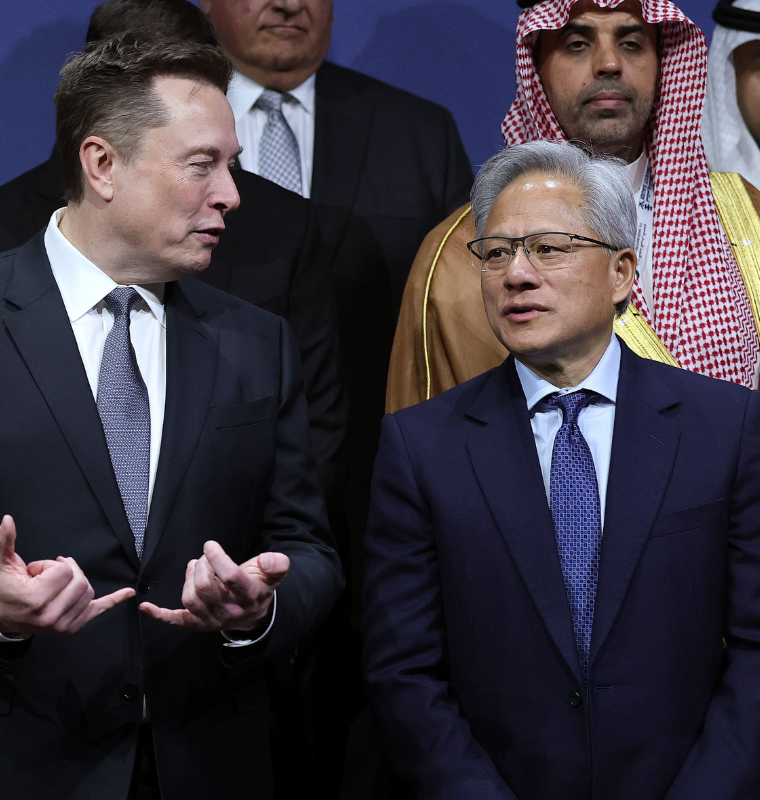Private Equity Faces Major Shake-Up as Industry Heads Toward Global Consolidation
Private Equity Faces Major Shake-Up as Industry Heads Toward Global Consolidation
By
Calder Monroe
Last updated:
November 5, 2025
First Published:
November 5, 2025

The private equity (PE) world is entering a defining era of consolidation, as industry titans warn that the days of unchecked expansion and easy capital are coming to an end. At the Global Financial Leaders’ Investment Summit in Hong Kong, some of the biggest names in finance highlighted a stark reality—there are now more private equity funds in North America than McDonald’s outlets, and only the strongest will survive.
KKR & Co’s co-CEO Joe Bae underscored the scale of overcrowding: the U.S. hosts about 14,000 McDonald’s locations but nearly 19,000 private equity funds, a striking indicator of just how saturated the industry has become. Bae noted that this imbalance is fueling fierce competition and forcing fund managers to become far more disciplined and performance-driven than before.
The Post-Boom Reality
The warning comes after a historic private equity spending spree in 2021, when low interest rates and a wave of post-pandemic liquidity led to record dealmaking. Now, as rates remain elevated and valuations normalize, PE firms are struggling to offload aging assets bought at inflated prices.
Firms that resisted the temptation of cheap leverage and instead focused on operational value creation are now outperforming, Bae said. Others, however, are trapped holding illiquid portfolios in a high-rate environment, with investors demanding faster exits and stronger governance.
End of the Ultra-Low-Rate Era
Howard Marks, co-founder of Oaktree Capital Management, noted that the “era of ultra-low rates is over.” He predicted that even with future rate cuts, U.S. interest rates would likely settle around 3% to 3.5%, which is “neither stimulative nor restrictive.”
This tighter monetary landscape is transforming how private equity operates. Firms accustomed to raising billions through cheap debt are now facing a market that rewards fundamentals over financial engineering.
Zombie Firms and Investor Scrutiny
Private equity fundraising has slowed sharply as limited partners (LPs) become more selective. According to EQT CEO Per Franzen, only about 5,000 of today’s private equity firms have successfully raised funds in the past seven years. He predicts that up to 80% of smaller firms could become “zombie funds” within the next decade—managing only existing investments without attracting new capital.
Franzen added that in the next major fundraising cycle, fewer than 100 globally diversified firms could control 90% of private market capital, underscoring how consolidation will redefine the landscape.
Despite the shakeout, some see opportunity. Rob Lucas, CEO of CVC Capital Partners, told the summit audience that consolidation should be viewed as “a sign of strength” that will restore discipline and long-term stability to the industry.
Signs of Renewed Optimism
Not all the news is grim. Major PE firms remain bullish on long-term demand for private capital. Harvey Schwartz, CEO of The Carlyle Group, said that the need for funding across industries “for the next 5, 10, 15 years” is growing rapidly, driven by technological transformation and global economic expansion.
One bright spot is the booming secondaries market, where investors buy stakes in existing private equity funds. This segment is expected to surpass $200 billion in transaction volume in 2024—up from $160 billion last year—and could reach $381 billion by 2029, according to iCapital’s industry projections. Schwartz noted that secondaries are helping create a more dynamic, liquid private equity ecosystem, giving both investors and fund managers more flexibility.
Deal Activity and Future Outlook
Private equity dealmaking is also showing signs of recovery. According to EY, global PE activity surged to $310 billion in the third quarter, the strongest performance since 2022, as narrowing valuation gaps and rising confidence brought investors back to the table.
The recent policy shift in the United States allowing 401(k) retirement plans to invest in alternative assets is also opening new funding streams. A survey by AlphaSights and EY found that 90% of private equity firms are now exploring ways to tailor products for the 401(k) market, signaling fresh opportunities for retail-level participation in private markets.
The Road Ahead
While the next few years could see thousands of smaller firms fade away or merge, the consensus among top executives is clear—private equity will emerge stronger, leaner, and more transparent. The coming consolidation wave is not a sign of decline but a correction that will reset the industry for the next decade of disciplined growth.
As Bae summed it up: “This is no longer about chasing easy returns. It’s about operational excellence, governance, and the ability to create real value in the companies we own.”
Popular articles
Subscribe to unlock premium content
How Adults Are Paying to Experience Silent Daylong Festivals for Mindfulness

The Rise of Ultra-Personalized Scent Memory Experiences Using Olfactory Therapy

Why Some Millennials Are Paying for One-Day Luxury Survival Challenges in Nature

How Adults Are Paying to Experience Silent Daylong Festivals for Mindfulness

The Rise of Ultra-Personalized Scent Memory Experiences Using Olfactory Therapy

How Adults Are Paying to Experience Silent Daylong Festivals for Mindfulness







.png)

